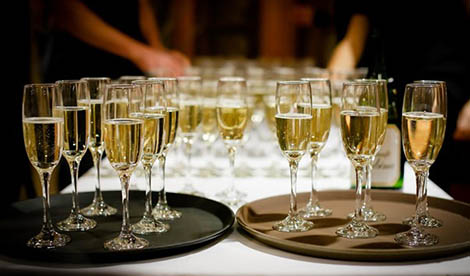

Blog

Social drinking and stress drinking – how to tell the difference
Thursday December 22, 2022
Alcohol is everywhere, especially during the festive season. But how much drinking is social drinking, and how much is stress drinking?
Stress drinking is when you drink to take the edge off, to unwind, or to numb out at the end of a stressful day.
Sometimes we justify drinking every day – because we feel stressed.
At this time of year, it’s easy to blur the lines of stress drinking and social drinking, because the festive season can feel stressful.
It’s also the time of year that society deems it acceptable to be out drinking most nights, and most social events include alcohol.
So how do you tell the difference between stress drinking and social drinking? Social drinking is largely safe and unproblematic. Having a couple of glasses of alcohol in a social environment (and leaving it at that) is considered social drinking. Stress drinking is drinking to relax, escape, or numb yourself. It’s used as ‘self-care’ to self-medicate or alleviate anxiety and overwhelm, or to temporarily soothe an overworked nervous system.
The issue with stress drinking is that alcohol actually causes the brain to release the stress hormone cortisol, leaving us feeling more stressed and anxious than before we had a drink.
Also, as we build tolerance to alcohol, we need more and more to reach the same effect.
What starts as ‘just one’ can quickly become half a bottle, then the whole bottle, and with this increased consumption comes many other detrimental side effects – including poor sleep, low energy, brain fog, anxiety, weight gain, and more.
Stress drinking danger zones
- You arrange catch-ups just so you can drink.
- You don’t just have two drinks – you keep going to help you unwind.
- You’re resentful when alcohol isn’t served at a social event.
- You rely on alcohol to help turn your busy mind off, or to get to sleep.
- Your tolerance is increasing, and you need to drink more for the same level of switch-off.
- You’re stuck in a cycle of feeling stressed and overwhelmed, drinking to feel better, then feeling worse.
- You drink on nights you told yourself you wouldn’t – because you feel anxious or exhausted.
Grey area drinking includes stress drinking, and it’s far more common than people think.
I believe the term alcoholic is outdated and surrounded by stigma.
The truth is, so many drinkers fall into the ‘grey area drinking category’ – which means they’re not at rock bottom, but their relationship with alcohol is problematic.
It’s often at the end of the festive season when excessive stress drinking leads people to try to abstain from drinking for a period. Our new year pledges of better health are largely alcohol related.
Some tips to manage your drinking this festive season:
- Recognise your drinking habits and understand where they’re coming from.
- Be truthful about how much you’re actually drinking, and track your units per week. Anything above 10 units a week is considered problematic.
- Try and manage your stress in a different way, and take time out for yourself to relax with exercise, breathwork or meditation.
- Whenever you reach for a glass of alcohol, ask yourself: Is this social or am I just stressed?
For further information or support, contact Sarah Rusbatch (Grey Area Drinking Coach) at sarahrusbatch.com
This article first appeared in the October-November edition of Medicus magazine: www.amawa.com.au/medicus/november2022/#page=58

